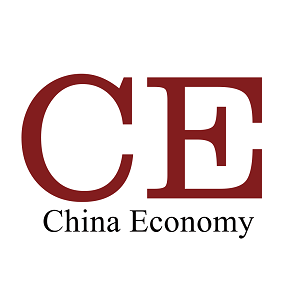by Xinhua writer Liu Yanan
NEW YORK, Nov. 8 (Xinhua) -- China would be an attractive investment destination in 2021 thanks to its strong economic growth, higher interest rates and bond yields as well as the expectation of stronger currency, according to investment experts.
"I'm still pretty optimistic both for China and for indeed U.S. equities in the second half of next year" once people have COVID-19 vaccines and the pandemic gets better managed, Jonathan Wilmot, founding partner and head of macro research with London-based AI Asset Management Ltd., said on Saturday.
Speaking at an online dialogue organized by The Chinese Finance Association (TCFA), Wilmot said China has done a great job in managing the economy through this virus and it doesn't need a lot of fiscal support at the moment.
Clearly, China is a massively attractive market taking into account the country's GDP size and share in international trade, according to Willem Buiter, visiting professor of international and public affairs at Columbia University and former global chief economist at Citigroup.
"I do consider the United States to be an attractive market. I certainly consider China to be an attractive market and it's expanding rapidly" with GDP growth of 4.9 percent in the third quarter, said Buiter.
China has obvious ammo in the monetary and fiscal policy tanks because China has done much less monetary and fiscal stimulus than the United States and Europe and China directly addressed the pandemic much more effectively, Buiter added.
It would be very easy to invest in Chinese stock markets in 2021, said Robin Hu, chief executive officer of Shanghai Broadresource Investment Management Co., Ltd.
"We have full positions in five sectors and even have leveraged investment. The stock market should go up without a question," said Hu.
Brian Smedley, managing director and head of macroeconomic and investment research at Guggenheim Investments, Inc., said China is a very attractive investment destination and global investors outside China are very underweight in their exposure to Chinese assets.
"So there's clearly an opportunity over time for money to move into China," and institutional framework would continue to strengthen and develop over time, said Smedley.
"The combination of a strong economy, a firm yuan and continuing rotation into Chinese stocks by both local and foreign investors will ensure outperformance on a 6-12 month view," Mehran Nakhjavani, emerging markets strategist with MRB Partners, said recently.
China is the only major economy recording positive GDP growth this year and its central bank is the only one signaling policy normalization ahead, said Nakhjavani in a research note.
Investors should overweight Chinese stocks in global and emerging market portfolios even though there is still no evidence of a broad-based earnings rebound, said Nakhjavani.
Nakhjavani also predicted that foreign appetite for Chinese bonds would likely persist on a 6-12 month horizon as Chinese bonds offer a significant premium over yields in special drawing rights (SDRs) basket of the International Monetary Fund.
The main risk of investing in China is that Chinese currency RMB is not yet fully convertible and that will remain an issue, said Buiter.
Statistics show that the yields of Chinese 10-year government bonds have come back to pre-pandemic levels and foreign ownership of Chinese government and policy bank bonds have doubled since 2017.
The exchange rate of RMB against U.S. dollar recently reached the highest level since July 2018, and Shanghai Stock Exchange Composite Index gained 8.59 percent so far this year.



